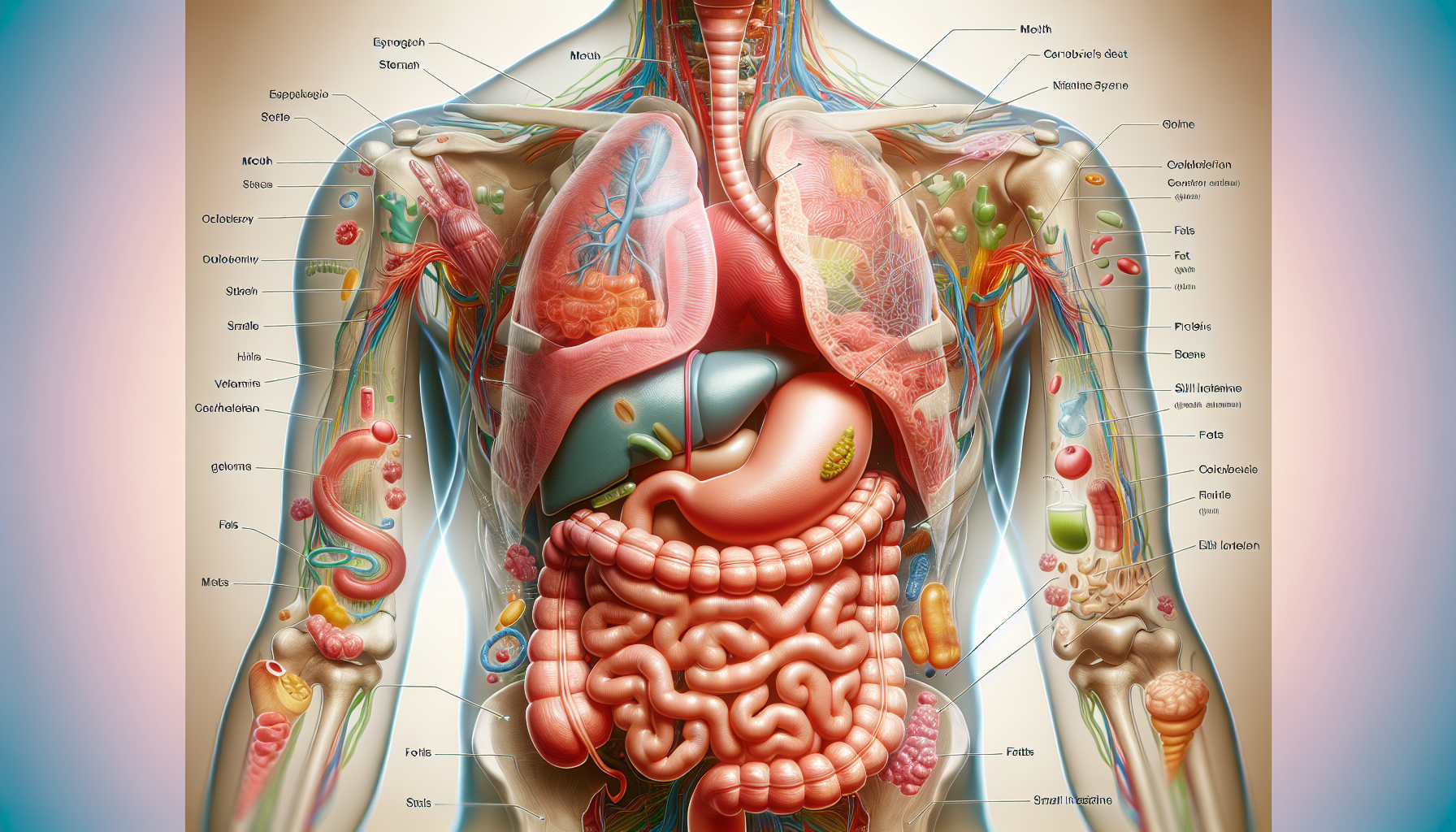In our quest for optimal health, we often turn to supplements to fill the gaps our diets might leave. However, the journey from swallowing a pill to reaping its benefits is complex. Understanding the science behind supplement absorption can help us make informed choices about the supplements we take and how we take them.
The Journey of a Supplement
When you ingest a supplement, it begins a challenging journey through the body, facing obstacles that can affect how much, and how quickly, its active ingredients are absorbed. One key factor is bioavailability, which refers to the proportion of a nutrient that enters the circulation when introduced into the body and so is able to have an active effect.
Digestive System and Absorption
The digestive system is the first major player in this process. Here, supplements are broken down, and their nutrients are released. For fat-soluble vitamins like A, D, E, and K, this process requires dietary fats to be present. Water-soluble vitamins, on the other hand, can be absorbed directly into the bloodstream. For more insight into this system, read about Digestive Health.
Factors Influencing Absorption
Numerous factors influence the absorption rate of supplements:
- Formulation: The form in which a nutrient is presented can affect its absorption. For instance, fat-soluble vitamins might be better absorbed when taken with meals that contain fats.
- Time of day: Some supplements are better absorbed at certain times of the day. For example, taking magnesium at night may benefit sleep quality.
- Interactions: Certain supplements can interact with medications or other supplements, potentially inhibiting or enhancing absorption.
- Health conditions: Gastrointestinal issues can impair nutrient absorption. Conditions such as Crohn’s disease or celiac disease may require special supplementation strategies, as discussed in Medication and Supplements.
Enhancers and Inhibitors of Absorption
Certain foods and nutrients can act as enhancers or inhibitors of supplement absorption. For example, vitamin C can enhance iron absorption, while calcium can compete with magnesium for absorption.
The Role of the Liver
After absorption, nutrients are transported to the liver, the body’s primary detoxification organ. The liver metabolizes nutrients, which can sometimes result in a reduction of their effectiveness before they reach the bloodstream.
The Importance of Quality
Not all supplements are created equal. The quality of ingredients, manufacturing processes, and the presence of bioenhancers can all affect how well a supplement is absorbed. High-quality resources on this topic can be found at the National Institutes of Health Office of Dietary Supplements and ConsumerLab, which provide insights into supplement quality and effectiveness.
Understanding Bioavailability
Bioavailability is central to supplement absorption. This is why liposomal delivery systems, which encapsulate nutrients in a lipid layer to enhance absorption, have gained attention. Research on such innovative delivery systems is available through specialized resources like the Journal of Nutritional Biochemistry.
Common Supplement Absorption Issues
Some common issues that can hinder supplement absorption include:
- Digestive disorders: Diseases that affect the gut can lead to malabsorption of nutrients.
- Aging: As we age, our bodies may become less efficient at absorbing certain nutrients, necessitating adjustments in supplementation.
- Lifestyle: Smoking, alcohol consumption, and poor diet can all negatively impact nutrient absorption.
To delve deeper into how lifestyle influences medication and supplement use, consider exploring The Influence of Lifestyle on Medication and Supplement Use.
Practical Tips to Enhance Supplement Absorption
Here are some practical tips to enhance the absorption of supplements:
- Take with food: This can help with the absorption of fat-soluble vitamins and minerals.
- Mind the timing: Some supplements are best taken at specific times of the day.
- Check interactions: Be aware of potential interactions with other supplements or medications.
- Choose quality: Opt for reputable brands that have their products independently tested.
For a more comprehensive look into the proper storage and disposal of supplements, which can also affect their potency, read How to Safely Store and Dispose of Medication.
Advanced Topics in Supplement Absorption
- Genetic factors: Individual genetic variations can affect how nutrients are absorbed and utilized.
- Gut microbiome: The health of your gut bacteria plays a role in nutrient absorption.
- Enzyme cofactors: Some nutrients require enzymes for proper absorption, which themselves can be influenced by other vitamins and minerals.
Conclusion
Understanding the science behind supplement absorption is crucial for making the most out of the supplements we take. By taking into consideration factors like bioavailability, quality, and individual health conditions, we can tailor our supplement intake to better support our health goals.
Remember, while supplements can play a vital role in health, they should not replace a balanced diet and healthy lifestyle. For a well-rounded approach to health, including the role of supplements, explore topics such as Healthy Aging: Medication and Supplement Strategies.
In conclusion, by applying the insights from the science of supplement absorption, we can make more informed decisions, ensuring that the supplements we take are as effective as they can be.



